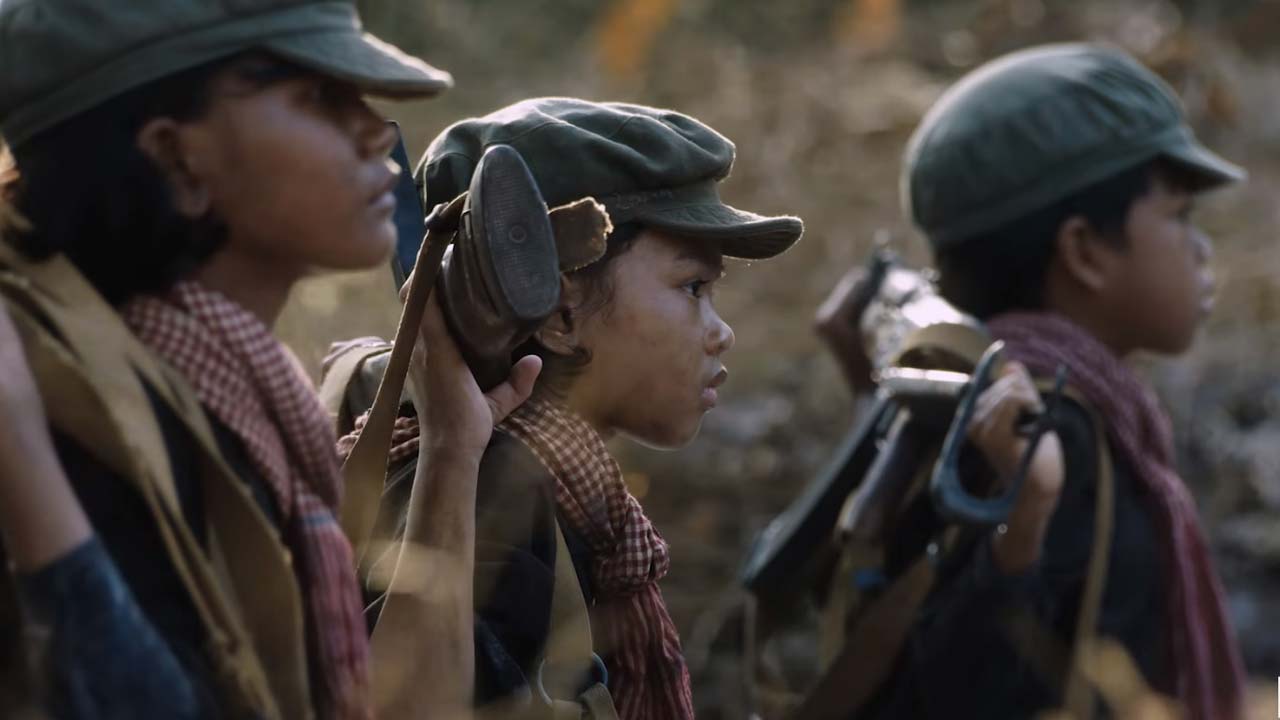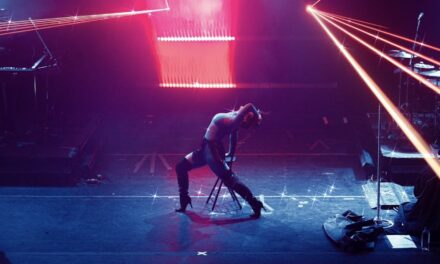Angelina Jolie has not exactly made a name for herself as a talented director. Her previous films, while not necessarily the worst possible outcomes for their respective products, are generally middling or unimpressive fare, devoted to a workmanlike focus on aesthetic star power at the expense of thematic depth that betrays Jolie’s roots as an actress. However, there’s something markedly different about her latest effort, the biographical drama First They Killed My Father. There is no glamour to this story, no intrinsic beauty, no banal human attractiveness in which to couch this narrative. Rather, all we have is the experiences of a young girl in the most trying time of her life, and through that lens Jolie’s direction creates something unique and memorable.
From a screenplay co-written by the author of a memoir by the same name, First They Killed My Father follows the experiences of five-year-old Loung Ung, a Cambodian girl caught in the Khmer Rouge uprising of 1975. Loung and her family are stripped of their privilege and possessions as they are forced to evacuate the city of Phenom Penh, and over the next several months they are held in a series of prison camps operating under the guise of socialist communes. After the death of her father, Loung is separated from her mother and siblings and enters the ranks of a school for child soldiers, where she resists the daily conditioning to turn her into a killing machine.
What Jolie captures most viscerally is the sense of childish helplessness to Loung’s situation, while also emphasizing that even the adults in her life are being swept along by forces beyond their control. Camera angles are low to the ground, looking up at towering adults whom Loung either relies on for support or must warily engage with at risk to her safety, sometimes simultaneously. This is only reinforced as the camera pulls out to aerial shots that show Loung as one of hundreds and thousands manipulated by the Khmer Rouge regime and forced to work on behalf of a cause they had no say in. There is a perpetual sense of helplessness and emotional turmoil, presented through the subtle expressions of child actress Sareum Srey Moch in what is a shocking feat for a performer so young and without other film credits to her name.
Special attention must also be given to the editing and sound design teams, who pointedly emphasize small and particular details that make the presented experiences feel appropriately lived-in. Loung’s—and consequently the camera’s—attention will catch snippets of the political situation that gave rise to her family’s forced migration, but will then divert to the delights of other children and a desire to join them in their fleeting frivolity. Bits of auditory clues will fade in and out with Loung’s perception, including discordant ringing sounds during moments of intensity and anxiety. These are small quirks, but they lend to the film a notion of realistic experience rather than cinematic recreation, which is no small feat and is entirely appropriate for the film’s historically reverent tone.
The only big misstep in First They Killed My Father, as with Jolie’s other films, is in the pacing, which doesn’t undermine the experience so much as draw it out unnecessarily. When a film is built so much around wordless reaction and experiential horror, each scene needs to have a complementary emotional resonance that is unfortunately absent for swaths of this film’s runtime. Even so, the scenes that do pack a punch are visceral and alarming, culminating in a climax that is harrowing in its realism and disturbing in the implication that it reflects real events. First They Killed My Father is a harrowing film that conveys war through the eyes of a child, so it’s all the more impressive that it decides to do so through meditative silence and observation. If you’re in the mood for something a bit more sobering during your next Netflix session, this might be the film to set your mind thinking.












